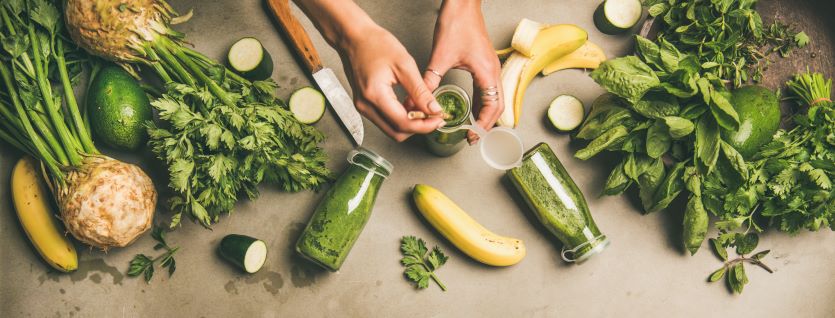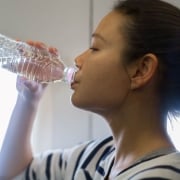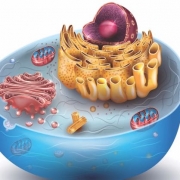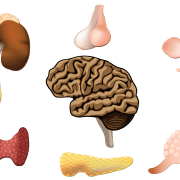Fact or Fiction: Making Sense of Detox Myths
In recent years, detox has become a bit of a buzzword. Whether it’s a juice cleanse or a special diet, you’ve likely heard of detoxing in one form or another—maybe you’ve even tried one of these approaches yourself.
Detoxing is based on the idea that the human body is swimming in environmental toxins that you can, and should, remove . What’s not to like, right? Toxins are bad, so naturally you’d want them out of your body.
Unfortunately, it’s not that simple. As with many health topics, there’s a lot of misinformation about detoxification out there. And, in pursuit of a healthier lifestyle, there’s a good chance you’ll encounter some of these detox myths. So keep reading to sort the detox facts from fiction!
Are There Really Toxins in My Body?
Let’s start with the very premise of detoxification. If you’re hoping to detox your body, there have to be toxins to remove in the first place. So are there really toxins in your body?
In short, yes. But the long answer unravels some important complexities.
The term “detox” has traditionally been used in medical contexts to describe the process of removing alcohol, drugs, or poison from a patient. This might mean pumping a patient’s stomach, administering an antidote, or, as is often the case, simply letting the body dispel the toxins itself.
In a health context, however, detoxification is applied to any toxins in the body, not just those outlined above. This might include alcohol, but not life-threatening amounts of it. Other toxins that are present in most people’s bodies include waste matter and digestive byproducts (in other words, the substances in your poop), chemicals, pollutants, and pesticides. These toxins come from the air, cleaning products, smoking, and even your food.
Although these toxins are likely present in your body, there’s no cause for alarm. Your body has mechanisms and organs for protecting you against these types of toxins.
How Does the Body Remove These Toxins?
As mentioned above, you’re not completely defenseless against any toxins that may be present in your body—in fact, your body is already well-equipped to detox itself.
One of the most obvious ways your body removes toxins is by excreting waste in feces and urine. These natural processes help remove unnecessary, and in some cases, harmful substances from your body. Think about the last time you had a stomach bug. Your bowel activity probably amped up. This is your body’s way of trying to flush out—pun intended—whatever is irritating it.
As far as detox processes go, you’re probably pretty familiar with peeing and pooping. You may be less familiar with your body’s internal detox systems. Your kidneys and intestines both help filter and remove toxins from your food and beverages, but there’s one organ that does most of the leg work: the liver.
Whether it is removing bacteria from your blood, converting ammonia (a toxin) into urea (a component of urine), or helping process drugs, your liver stays busy. The liver is basically the body’s filter: substances pass through it and it removes toxins. Many medications, for example, are not initially usable by the body—they are too toxic. The liver breaks these drugs down into less toxic and more usable forms, allowing your medication to actually do its job.
The detox processes outlined above all happen naturally—you don’t have much, if any, control over them. And so, at this point, you may be wondering what elements of detoxing you can actually influence.
Does the Body Ever Need Help Detoxing?
Nobody is disputing the fact that the body naturally removes toxins on its own—and if they were, there’s not any science to back them up. So what’s with all the detox diets, hacks, and products?
People love a quick fix. But when it comes to helping your body detox and cleanse, there rarely is a quick fix. This doesn’t mean that you can’t help support your body’s detox processes to maintain efficiency and effectiveness—it’ll just take time and commitment.
Your body’s ability to remove toxins is impacted most by your lifestyle: your diet, exercise habits, and other choices. As discussed above, your liver is your biggest detoxing asset. And so you’ll want to take care of it.
Liver health is impacted by a variety of factors ranging from your alcohol consumption to the foods you eat. And, as with many aspects of a healthy lifestyle, it’s all about moderation. Drinking a little bit of alcohol won’t damage your liver. As soon as that drinking becomes excessive, however, your liver will start to wear out. It is, after all, working harder. Binge drinking can lead to scarring and swelling of the liver, which can cause complications down the road.
Foods such as broccoli, Brussels sprouts, and cauliflower can help support liver health. Similarly, some studies have linked coffee consumption to maintaining liver longevity and health.
Naturally, you’ll want to avoid those oft-warned against vices: too much sugar, excessively fatty foods, and smoking, as well.
Dispelling Detox Myths
At this point, you should have enough knowledge to assess most detox myths and products on your own. Just for good measure, let’s take a look at two common detox myths below:
- You can Sweat Out Toxins: One of the more popular rumors about exercise is that you can actually sweat out toxins. It’s an appealing idea: you work up a sweat on the treadmill, help keep yourself in good shape, and, as an added bonus, purge your body of harmful substances. If it sounds too good to be true, that’s because it is.
Sweat is almost entirely water. There’s a little bit of salt in there, but that’s about it. Sweating is the body’s way of cooling itself, not ridding itself of toxins. However, this doesn’t mean that exercise doesn’t play a part in detoxing. Exercise helps promote liver health—and if there’s one thing you should take away from this article, it’s that the liver is your detox workhorse. - Detoxing can Help You Lose Weight: Many detox products and diets are marketed as weight-management solutions. While fasting, juice cleanses, and other detox regimens may help you shed a few pounds in the short run, studies have shown that they are rarely long-term solutions for a healthy weight.
- Your Body Needs Help Detoxing: As mentioned above, your body already has several lines of defense against toxins. And several mechanisms for removing them from your body. Most detox products claim to do one of two things: help your body’s natural detox processes work more efficiently or remove toxins in a way your body doesn’t already do (i.e. pulling toxins out of the skin etc.). Most of the time, your body doesn’t actually need any help—as long as you’re maintaining a healthy lifestyle and diet, your natural detox systems should be able to handle themselves.
- You can Remove Toxins Topically: The skin has pores—if you’ve ever had a zit you’re all too familiar with this fact. And so it seems logical that toxins could be removed through those pores. There are a number of products that claim to do just that—whether it’s through your feet, face, or another patch of skin. In reality, your skin is designed to keep toxins out, to protect you. And it’s good at its job. You can clean your pores by removing dirt, grime, and built up oil, but toxins won’t be coming out.
Moderation and Management: Keeping Toxins Out of Your Body
It can be difficult to escape the flashy claims of fast fixes and detox fads—they sure seem appealing. And they’re designed to! But remember, when in doubt, return to the tried and true approaches to health. Helping your body rid itself of toxins is all about moderation and lifestyle management: try to eat a well-balanced diet (with an extra dose of broccoli!). Drink in moderation, and, if you haven’t already, try to quit smoking. And, of course, exercise a few times a week.
No matter where you are on your health journey, it’s never too late—or too early—to throw your body’s detox processes a bone. Or, in this case, some broccoli.
References
https://www.hopkinsmedicine.org/health/conditions-and-diseases/liver-anatomy-and-functions
https://www.webmd.com/hepatitis/features/healthy-liver
https://www.healthline.com/nutrition/11-foods-for-your-liver#8.-Cruciferous-vegetables
https://www.theguardian.com/lifeandstyle/2014/dec/05/detox-myth-health-diet-science-ignorance
https://www.health.harvard.edu/staying-healthy/the-dubious-practice-of-detox
https://www.healthline.com/nutrition/detox-diets-101#effectiveness













